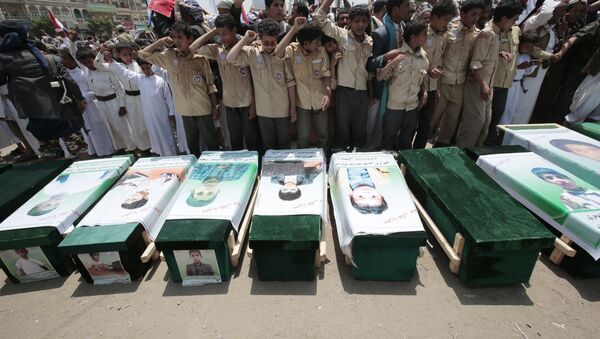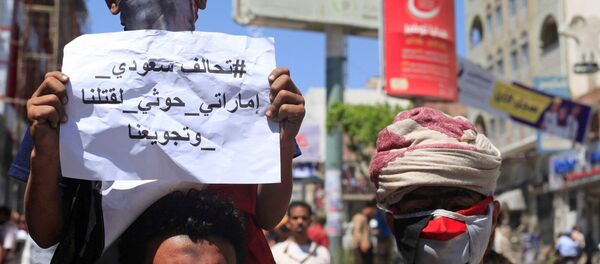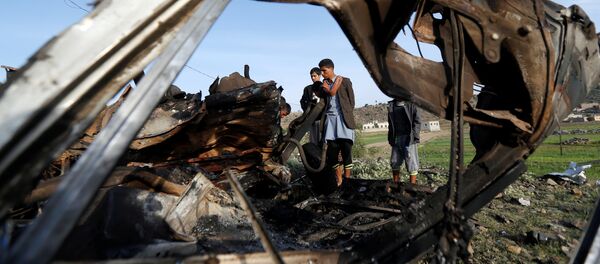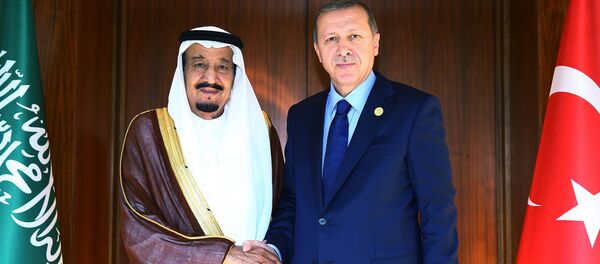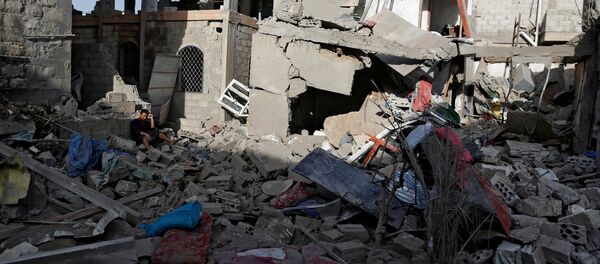Lowcock told the Security Council that this famine would be "much bigger than anything any professional in this field has seen during their working lives."
"Yemen is almost entirely reliant on imports for food, fuel and medicines," Lowcock said. "And the available foreign exchange — from what little remains of oil exports, from money sent home by Yemenis out of the country and from international assistance — has been simply inadequate to finance adequate levels of imports to support the population."
The conflict began in 2015 when an uprising by the Houthi minority, who are Zaidi Shiite Muslims, forced Yemeni President Abdrabbuh Mansour Hadi from power. The Saudis quickly came to his aid, launching a war against the Houthis, who also call themselves Ansar Allah, along with forces from the United Arab Emirates, claiming the Houthis were nothing more than a proxy force fighting for Iran. Since then, more than 10,000 Yemeni civilians have died, and a deadly cholera epidemic has threatened hundreds of thousands more.
Now, however, the food shortage has reached an extreme crisis point, with the prolonged battle around the key port of Hodeidah threatening a grain facility that could feed 3.7 million people for a month, Lowcock said, and blocking vital food and medicine imports going from the port to large parts of the country, including the capital of Sana'a.
Lowcock noted, however, that scaled-up UN efforts have been able to reach 8 million Yemenis with food and supplies in recent months, but that 14 million is wholly out of reach.
Meanwhile, US Deputy Secretary of State John Sullivan and UN Special Envoy Martin Griffiths discussed ways to reboot peace talks on Wednesday.
"The Deputy Secretary and the Special Envoy discussed the dire humanitarian situation and latest steps being taken to alleviate the suffering of the Yemeni people, as well as the urgent need for de-escalation and dialogue throughout Yemen," State Department spokesperson Heather Nauert said in prepared remarks.
Kathy Kelly, co-coordinator of Voices for Creative Non-Violence, told Radio Sputnik's Loud and Clear Wednesday that the fact that UN Security Council failing to even mention Saudi Arabia as an aggressor state in its resolutions on the war in Yemen was "a cruel joke."
Kelly noted that the number of Yemenis facing starvation is roughly equivalent to the entire populations of Chicago, Los Angeles and New York combined. "This is something that has been shown, now, by some very sophisticated analysts to be a very deliberate kind of economic warfare, along with the military bombardment. And it's criminal, in terms of international law, to deliberately target and eliminate the capacity for the delivery of food and the production of food, both by fisheries and farms, and yet this is happening."
Kelly noted an article, written by London School of Economics professor Martha Mundy and published last week by Tufts University's World Peace Foundation, which cited an unnamed Saudi diplomat who said off the record: "when we control them, we will feed them."
"In a way, you could say not only does Saudi Arabia have the support of the United States, they've got the example of the United States," Kelly said, noting how the US used the final days of the 1990-1 Persian Gulf War to strike civilian infrastructure targets in Baghdad, hundreds of miles away from the conflict zone in Kuwait, in order to exacerbate the effect that subsequent economic sanctions would have on Iraq.
Kelly told hosts John Kiriakou and Brian Becker that Saudi General Ahmad Assiri, who was fired from his post as deputy head of the Saudi intelligence directorate as part of a purge following the Saudi admission of journalist Jamal Khashoggi's death on Friday, said that after the Saudis destroyed a Médecins Sans Frontières hospital, he was criticized for it by former UN Secretary-General Ban-Ki Moon, who responded they would need to learn more about targeting from their American military partners.
"The kind of warfare that deliberately targets the most vulnerable people in a society certainly creates a menacing world. And why is this being done? It seems like it is to enhance the greed and the profit-making of the weapons-making companies supplying weapons to Saudi Arabia. And then to the United Arab Emirates," part of the Saudi-led coalition, "who want to control the coastline and the access to ports and the Saudis that want to gain control over Yemen's resources. So it's greed, it's fear, it's pride, combined with slaughtering weapons and the capacity to starve people."
"The United Nations should be able to address this. But instead, the Security Council has given protection to the warring parties in the Saudi-led coalition."
Kelly said she wouldn't herself fault the leadership of UN agencies or NGOs for failing to sound the alarm about the looming catastrophe in Yemen, but she instead pointed her finger at the UN Security Council for utterly failing to even mention Saudi Arabia as a warring party in its resolutions on Yemen thus far. She called it "a cruel joke."
"The United Nations should have the heft and the diplomatic capacity to pass resolutions and insist on the adherence to these resolution by member states." She noted that the large dues paid to the organization by certain member states — such as the US — help to give them undue influence over the body, enabling Saudi Arabia to get such ludicrous opportunities as sitting on the Commision for Human Rights, which it has done since 2015.
"This makes a mockery of the United Nations," Kelly said.
